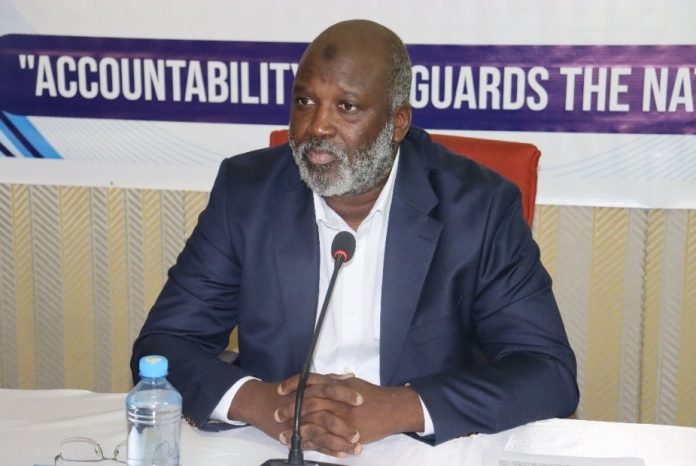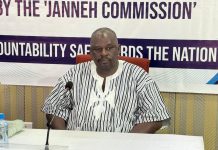By Kebba AF Touray
Former Attorney General and Minister of Justice Abubacarr M. Tambadou on Thursday flatly denied that his ministry interfered in the work of the Janneh Commission, the high-profile inquiry that investigated assets linked to former President Yahya A.J.J. Jammeh and close associates.
Testifying before the National Assembly’s special select committee on the sale and disposal of Jammeh’s assets, Tambadou was pressed about complaints of interference and government encroachment in the Commission’s work. He drew a line between the Ministry of Justice and the broader government.
“The Ministry of Justice is not responsible for the actions of the entire government,” he said. When Lead Counsel Lamin M. Dibba suggested the two could not be separated, Tambadou insisted otherwise. “I have been very clear. There is no one in that commission who will sit here and tell you that the Ministry of Justice ever attempted to interfere in their work. No one.”
Tambadou acknowledged that staff from his ministry were seconded to support the Commission. “Ms. Ramatoulie Sarr, the Deputy Secretary to the Janneh Commission, was double-hatching, whilst the drivers, the messengers, the admin officers and the secretaries were seconded on a full-time basis to the commission,” he explained.
Asked whether those staff were paid by the Commission, Tambadou said: “I would assume they would have been paid honorarium for being seconded to the commission.”
Pressed by Dibba on budgetary arrangements, Tambadou conceded that the Commission did not control its own funds. “They were completely dependent on the Ministry,” he said.
He argued that while the Commission required resources, its ad hoc nature did not justify full financial autonomy. “This was an ad hoc commission that was supposed to last three months, and you don’t expect a commission that was to last for three months to have its own autonomous financial arraignment, if you like, its own budget,” he said.
He added: “The lack of financial autonomy does not impede on the commission’s independence at all, because, as far as I’m concerned, and I believe this was shared by the commissioners and Counsel, which is why it was never raised, operational independence is far more important, I believe, than financial independence.”
Tambadou elaborated further: “Even if the commission is given millions of Dollars, if it they don’t operate independently, then it is useless.”
The former Attorney General explained how resources were provided. “The commission in my view needed a lot of money, but certainly they needed equipment and supplies, and they came to the ministry, and that’s why I said we deployed two or three vehicles from the ministry with drivers. We also deployed equipment,” he said.
He noted that additional support came from private offices. “From the Ministry of Justice officials who were deployed and working with the commission at the time, also did report that Ms. Bensouda was deploying resources from her office towards the commission, without charge,” Tambadou said.
When asked whether concerns were raised about that arrangement, he replied: “Not at all, and I don’t see a reason why there would be any concerns with that arrangement.”
The testimony also touched on the respective roles of commissioners and counsel. Dibba asked which commissioner should be concerned with administrative and financial autonomy. Tambadou replied: “I keep separating the two because Lead Counsel is not a member of the commission. She is assisting the commission. The commission, I think, is very clearly defined in the Constitution and the Commission of Inquiry Act, and even in the legal notice.”
He said that while responsibility was shared, the focus remained on delivering results. “Both the Ministry, Lead Counsel, the Commissioners, it was in everybody’s interest,” he said.
He added that after the initial setup, the process was straightforward. “Like I said, it was like a production line. You set up a commission, you give them their mandate, then you move to the next project.”
Tambadou defended the Commission’s dependence on the Ministry for resources. “If the commission doesn’t have a budget of its own, and it’s been funded through the Ministry of Justice, it’s normal that the commission would come to the ministry,” he said.
He explained that the Ministry could not disburse funds directly. “Every time the Commission makes a request to the Ministry, the Ministry has to make a request to the Accountant General’s Office, because that is where requests are made for disbursement of funds,” he said.



















